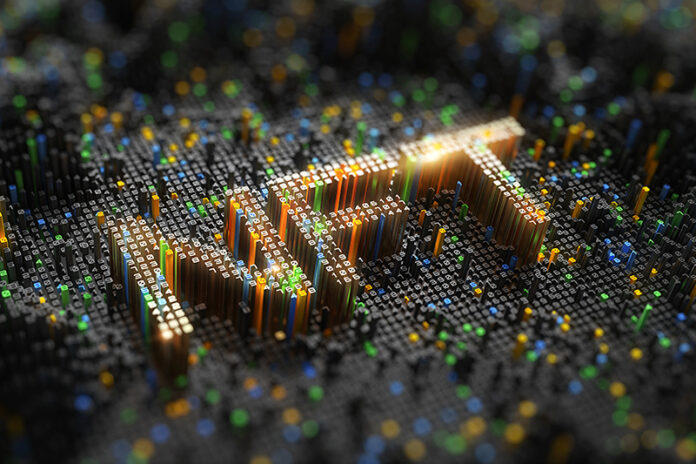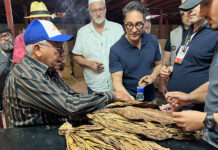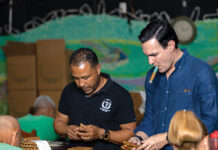In August 2022, La Flor Dominicana launched its first non-fungible token (NFT) project, The Golden Bull, a new iteration of its popular Andalusian Bull cigar. La Flor Dominicana took a different approach to selling this product. Rather than selling it directly to retailers through sales representatives or at this year’s Premium Cigar Association (PCA) trade show, the company chose to sell it through an NFT that anyone could bid on in an auction. Seven NFTs were rolled out in an auction during the month of August. None sold for less than $78,000, and in total the company earned $600,000 through this innovative sales method.
NFTs are quickly becoming a “thing” in business. Although the NFT category is still in its infancy, its long-term impact on businesses is starting to become more evident. NFTs are digital representations of assets and represent smart contracts between creators and their customers. In the case of La Flor Dominicana, the NFT—which was an animated image of the Andalusian Bull—is a contract between the manufacturer and the winner of the individual auctions. With this, the holders of the NFTs are contractually granted the exclusive right to order a set amount of the Andalusian Bull that’s been presented in a special size. Non-NFT holders can’t order this product and would need to purchase it from or obtain the product through someone that does own a Golden Bull NFT. NFTs grant special perks and access to their holders for a lifetime, but they can also be resold, benefiting both the seller and the NFT’s original creator in the process.
To launch its NFT, La Flor Dominicana worked with UREEQA, a company that helps creators manage and monetize their creative work. The company uses technology that validates and verifies the ownership, authorship and originality of creative work. UREEQA works to offer added protection of work beyond just copyright.
“We believe at our core that basically anyone who creates anything is a creator. From our standpoint, we all enjoy creations in some form, whether they’re paintings, music, architecture, luxury handbags or cigars,” explains Shannon Powell, head of sales and marketing for UREEQA. “Our mission was really just to build, maintain and evolve a secure digital ecosystem for proving and validating that any of those original creations can be tokenized. Take a luxury handbag, for example. We wanted a luxury handbag company to be able to sell their handbag via NFTs and have the consumers know, ‘Oh, that is a real thing. It’s been validated by UREEQA.’ We are that validator.”
UREEQA offers three different services that each offer some form of protection depending on which medium the creator is working within. Each category offers its own challenges that UREEQA tries to help solve. In the case of La Flor Dominicana, Tony Gomez, who serves as vice president of the company, was leading the charge. Powell notes that Gomez came into the project ready to innovate and was looking toward UREEQA to help him work through the technological barriers and hurdles of selling a cigar through an NFT.
“We were able to help him navigate through that by providing our patent-pending validation solution and our experience in the space,” says Powell.
With each NFT auction that UREEQA and La Flor Dominicana hosted, it was UREEQA’s responsibility to validate all of the data attached to each NFT for both the purchaser and Gomez’s company. UREEQA validated the winner’s information, as well as that of the cigars and the golden humidor that the winners of the auction would receive. All of this information was hashed into the smart contract attached to the NFT, which was then written onto the Ethereum blockchain. This highlights another issue UREEQA had to help with: the different terms and unique nature of NFTs and crypto in general. With cigars being part of a very traditional industry, UREEQA knew it would have to help La Flor Dominicana familiarize its customers with NFTs and the world of Web3 in general. The blockchain was another important piece of the puzzle that needed to be explained. Without the blockchain, the layers of protection granted to the NFT holder and to La Flor Dominicana wouldn’t be possible.
“The blockchain in its most basic form can be thought of as a public ledger. It’s a series of data that everyone can go onto the internet and see,” explains Powell. “The data can always be updated, but it can never be erased, so it’s excellent for tracking [the] ownership of something. Unfortunately, it doesn’t make it a great tool for tracking the validity of something. That’s kind of where we [UREEQA] come in. We validate something before or after it’s been hashed and tracked on the blockchain.”
Education is just as important in the NFT and crypto space as it is in the cigar industry. When working with any client, UREEQA approaches each project from a place of education. UREEQA also works hard to address any pain points companies may have in regard to the volatile nature of the crypto and NFT categories.
“We understand that the world sees crypto as this big negative thing right now because we had such a dramatic drop-off when we went from the bull market to the bear market, but we have to look at it from the angle of ebb and flow. We have rises, we have drops. That happens whether you’re investing in real estate, stocks or crypto. We just try to come at it from a point of education and ensuring that we’re protecting, educating and informing our clients as best we can,” says Powell.








